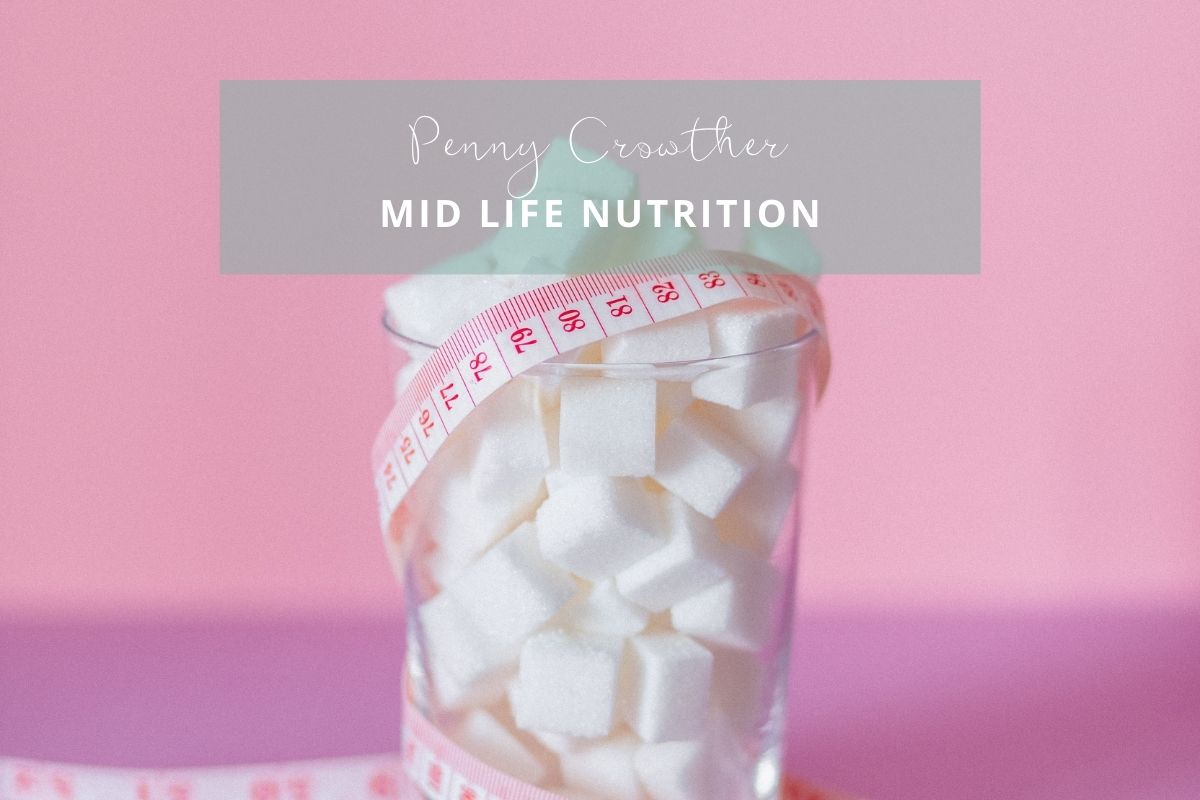
Continuous glucose monitors are quite the thing at the moment. Are they worth using and can they help you in peri menopause? Or are they just another fad for the "worried well"?
Why do you need to know about your blood sugar levels?
If there’s one thing that has a massive impact on your hormones, weight, mood, cholesterol and general health in in mid life, it’s your blood sugar levels. And they can fluctuate A LOT in peri menopause. You don't have to be diabetic to experience this.
In a typical day, your blood sugar levels will rise and fall. But the less variation in levels, the better for your overall health. If you’re out of balance as many people are, there will be sharp blood sugar spikes and troughs over a day. Even though your fasting blood glucose levels may return to normal and hence a glucose blood test comes back as fine and you'll be none the wiser.
What's the problem?
Occasional surges in blood sugar aren’t a problem. Your body is able to handle them. But regular blood sugar fluctuations, apart from affecting your mood, food cravings and energy levels, can lead eventually to insulin resistance. This means your cells stop responding to insulin and it leads to hormone imbalance, weight gain and conditions such as type 2 diabetes.
What can you do about it? The food you eat is one of the most important factors in controlling your blood sugar. You can change your diet without using a CGM. Chances are you know you need to keep your protein up, cut back on sugar and white carbs and eat more fibre etc.
Why bother with a CGM?
CGMs can be really useful as a way of looking at how your blood sugar levels are responding to the foods you eat and other lifestyle habits hour to hour.
Using a CGM can help motivate you to make diet and lifestyle changes because you can see the direct effects of the foods you eat on your body chemistry. The fascinating thing is, it’s individual to you. For example you and a friend could both eat 100g of banana but you could each have a different blood sugar response.
The timing of when you eat, your hormones, exercise and sleep quality can also affect your blood sugar.
Having data from your CGM means you can make changes to your diet/lifestyle habits and check it’s working. Changes can be small such as not eating carbs on their own, eating vegetables first, walking for 5 minutes after meals, or eating smaller portions. Most importantly, you can see if the changes are working by checking your CGM.
Boost your motivation
- Research has shown that people using a CGM as well as receiving nutrition advice, had better results than nutrition advice alone. CGMs help increase motivation
- In one study, the CGM group of people lost significantly more weight. They also had a greater reduction in cholesterol and fasting glucose levels than the other group. The CGM group were also more motivated with taking exercise
- Both groups reduced their HbA1c. This stands for haemoglobin A1c and can be measured in a standard test from your GP available to all over 40s. It tells you your average blood sugar levels over the past 3 months which is very useful and it can pick up pre diabetes
How to get hold of a CGM
When you work with me on a nutrition programme, you have the option to measure your blood sugar levels over a two week period with a CGM and a food app. The app is important because with it, you can enter in your meals and pull in exercise data from health apps. All this info appears on the blood sugar graph and you can easily see connections between what you ate and the effect on your blood sugar at different points in the day. A CGM on its own with a standard free app is less useful because you have to memorise what you’ve been eating and when. It all becomes less meaningful because you can’t easily see cause and effect mapped out for you.
The bottom line
Along with the right support, a CGM can help you:
- Learn which foods are right for you with actual data that is individual to you
- Increase motivation to make healthy changes and then check they are working
- Lose more weight
- Reduce high HbA1c
- Manage cholesterol
Who should not use a CGM?
- If you have health anxiety it could make this worse as it'll give you more to think about!
- If you tend to be a bit obsessive with the scales, a CGM might not be for you either.
What can you do next?
If you're finding it hard to make longterm changes to your diet and health, you may benefit from one of my programmes. There's no shame in not being able to do it yourself! Even though there's a huge amount of information around, it can be hard to navigate through what's right for you, not to mention actually implementing the necessary changes.
As well as providing personalised menu/supplement plans and access to laboratory tests if needed, I'm trained in health coaching. I will ask you the right questions that will bring clarity and move you forward. And keep you accountable. Depending on what level of support you need, I have different programmes to suit a range of needs. If you'd like a chat first, book your free health reset call here or call 07761 768 754 I will help you get clarity on your health goals and how you can achieve them.
